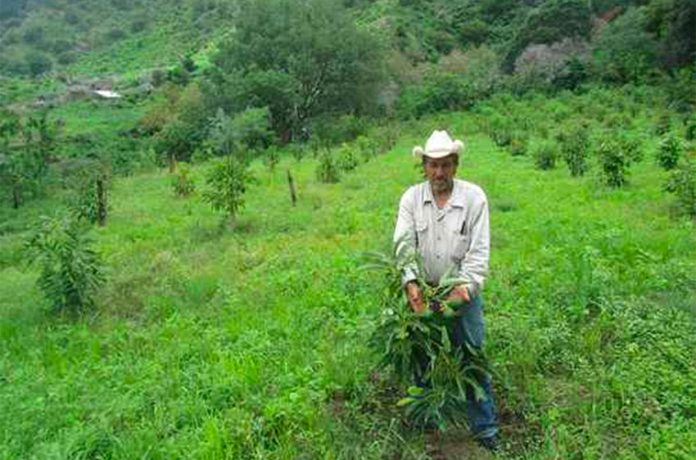As Mexico moves towards the legalization of the cultivation, sale and recreational use of marijuana, the head of the recently formed National Association for the Cannabis Industry (ANICANN) says that the biggest potential for the plant lies in industry and medicine rather than the stoner market.
“The first thing that we have to understand is that stoners isn’t where the big business is,” Guillermo Nieto told the news website Ozy.
The president of ANICANN, which represents about 200 companies interested in taking advantage of the upcoming legalization of marijuana, said he believes that industrial and medicinal marijuana will be more profitable in Mexico than that produced for recreational use because most Mexicans, especially those outside the capital, hold conservative views about the psychoactive plant.
“There’s a lot of misinformation, and we’re fighting against that. Some 70% of Mexicans think cannabis is bad,” Nieto said.
While a 2018 government survey showed that more than two-thirds of Mexicans are opposed to recreational marijuana use, the poll also showed that more than 86% are in favor of the availability of medicinal marijuana and almost 50% of respondents said that they support the industrial use of hemp in products such as paper, clothes and biodegradable plastics.
Luis David Suárez Rodríguez, president of the Mexican Medicinal Marijuana Association, said earlier this month that Mexico could become the biggest medicinal marijuana producer in the world in five years if the government gives the green light for the cultivation of the plant.
However, observers of the process to legalize the cultivation and recreational use of marijuana – debate on a range of proposals is taking place in the Senate this week – have questioned who will ultimately benefit from legalization: only big business or also communities where the plant has been cultivated for years.
Nieto, however, believes that Mexican farmers in states such as Durango, Sinaloa and Guerrero – who have long grown marijuana illegally for the recreational market in the United States but have recently seen their income dwindle as a result of legalization in some U.S. states – won’t be cut out of a legal cannabis market that, according to some estimates, could be worth US $2 billion annually in Mexico.
The ANICANN chief said he envisioned a contract model in which licensed farmers produce industrial cannabis and supply it to companies at an agreed price.
“Let’s not think about marijuana. Let’s think about cannabis as a whole plant – as fiber, CBD, paper,” Nieto said.
“Right now the big problem with the campesinos [farmers] is that they do it underground and when you do it underground, you don’t have the right technology. Without the right seeds, nothing is going to work. You need the right fertilizers and supervision,” he added.

Cultivating hemp for industrial use rather than THC-rich marijuana for recreational purposes would not only provide a guaranteed income for farmers but also allow them to not have to deal with dangerous criminal organizations, Nieto said.
“Industrial cannabis for those growers up in the mountains is a sure deal and a way of getting out of poverty,” he said.
“We have so many people in that business and in poverty that if we’re able to scale up their lives just by a small percentage we will be able to turn around the gross domestic product of the country.”
However, security analyst Jaime López took a different view, telling Ozy that small-scale marijuana farming likely won’t survive due to big business’s hunger for profits.
“It’s an idea with distinct PR value but little evidence to back it,” he said.
“Depending on how it plays out, big agribusiness might put most of them [small cultivators] out of business. Legal marijuana, from an economic perspective, would be like any other high-value crop: subject to economies of scale and highly attractive for big businesses and niche, artisanal producers,” López said.
Details about what the government will and won’t allow in a legal marijuana industry are expected to become clearer in October, when draft legislation is expected to be completed.
Jesusa Rodríguez Martínez, a senator with the ruling Morena party and a marijuana advocate, said that a five-day summit held last week on the legalization and regulation of marijuana, in which more than 90o people participated, would allow Congress and society to together “form the best legislation” for the plant’s cultivation, sale and use.
Citizens’ Movement Senator Patricia Mercado said that staging of the summit shows that progress is being made towards compliance with the rulings of the Supreme Court, which published eight precedents in February on the recreational use of marijuana that determined that prohibition of the drug is unconstitutional.
Source: Ozy (en)
